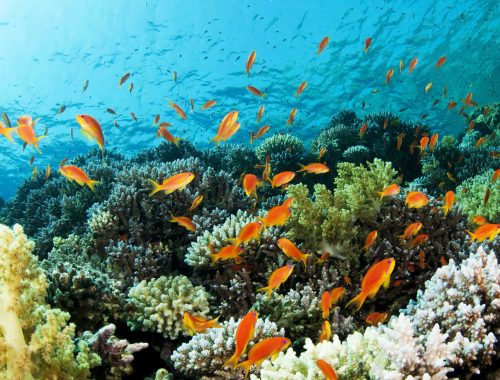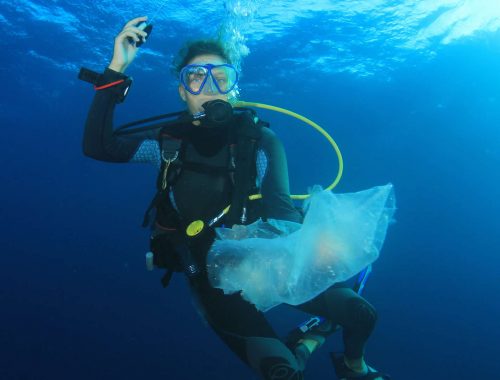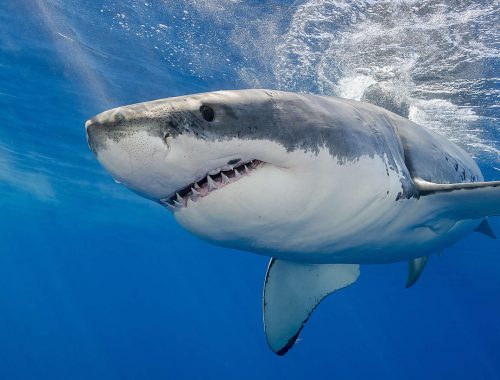This experience is tailored for school groups of up to 15 participants, offering an unforgettable stay in a beautiful beachfront villa along a remote section of Costa Rica’s coast. Step away from the usual tourist spots to contribute to the conservation of sea turtles, both adult and hatchlings. During night time beach patrols, you’ll witness nesting turtles and lend a hand in safely guiding hundreds of baby turtles to the ocean. Get involved with the local community and experience rural Costa Rican life first hand, while making a meaningful contribution to wildlife conservation. Perfect for educational eco-tourism adventures. Age 16+
Duration: 1week
Dates: Early July – mid December
Arrival day: Tuesday
Return day: Tuesday
Eligibility: General level of fitness required
Age: 16+
Share with friends...
Highlights
- Experience the magic of nesting turtles emerging from the sea at night, under the breathtaking view of the Milky Way.
- Watch in awe as hundreds of baby turtles hatch and clamber out of their nest, then release them to begin their journey back to the ocean.
- Relax in a hammock on a golden sand beach, soaking in the views of the rolling waves and the peaceful coastal vibe.
- Savor delicious local cuisine prepared by friendly cooks, as you are warmly welcomed into their vibrant community.
- Immerse yourself in authentic Costa Rican culture, engaging with locals and experiencing the beauty of rural life firsthand.
At our turtle conservation project on Costa Rica’s stunning west coast, we specialize in hosting groups of passionate volunteers. Whether you’re planning a school trip, a community service project, or an eco-tourism adventure, we have the experience and flexibility to make your group’s visit unforgettable.
Group Accommodation
- Ideal for groups of up to 15 participants in a beach side mansion!
- Flexible with larger or smaller groups—let’s discuss your needs.
Age Flexibility
- Welcomes volunteers aged 16 and above.
- Can accommodate younger students with appropriate chaperoning.
Teacher-to-Student Ratio
- Flexible supervision; typically, 1-2 teachers for older groups (16-18 years old).
- All groups are guided by dedicated co-ordinators on site.
Seasonal Availability
- Best time: Sea turtle season (July to December).
- Off-season (January to June): Other activities like reforestation and beach clean-ups available.
Complimentary Participation
- One teacher/guide participates for free.
Adaptable to Your Needs
- Flexible and ready to accommodate specific requirements with proper planning.
Costa Rica is renowned for its pristine coastline, home to lush turtle nesting beaches that stretch along its tropical shores. Despite this paradise-like environment, sea turtles face an alarming decline in population. Natural predators and human interference, such as turtle egg poaching, industrial fishing, and the illegal sale of turtle shells, have put all species along the Pacific Coast at risk of extinction.
As a sea turtle conservation volunteer in Costa Rica, you’ll work with a dedicated NGO, local community, and other volunteers in your group to protect nesting turtles and their eggs. Your efforts will contribute to the survival of more adult and baby turtles, helping to reverse the rapid decline in the population. The commitment of volunteers over the years has already resulted in thousands of turtles being saved.
Key Volunteer Tasks:
- Night Beach Patrols and Data Collection: Patrol the beaches at night and witness the awe-inspiring sight of nesting turtles emerging from the sea. Record research data and assist in transporting turtle eggs to the hatchery, where they can safely hatch under the clear, starry skies of Costa Rica. Volunteers often remark that this experience is unforgettable.
- Hatchery Monitoring: Check the hatchery regularly for emerging baby turtles, day and night. Collect valuable data on incubation periods and hatching success, contributing to global conservation studies aimed at ending industrial fishing near nesting sites. Hatchlings typically start emerging from mid- to late August.
- Conservation Projects: As a sea turtle conservation volunteer, you will be involved in preserving nesting habitats, leading beach and land clean ups, educating the local community about the importance of sea turtle conservation, and even participating in a reforestation programme. This educational outreach is crucial in creating lasting change.
- Chores and Community Engagement: Help keep the project house clean and interact with local children who often stop by to practice their English and invite you into their games. It’s a great way to build relationships and immerse yourself in Costa Rican culture.
- Sustainable Fishing and Mangrove Tours: You’ll also have the chance to visit a local fishing village to learn about sustainable fishing practices, enjoy a meal with the locals, and embark on a guided tour of the mangroves. This adds an exciting dimension to your volunteer experience, showcasing Costa Rica’s commitment to conservation.
Becoming a sea turtle conservation volunteer in Costa Rica is a rewarding way to immerse yourself in nature while making a meaningful impact on the survival of these incredible creatures.
- The sea turtle conservation project operates from July to December, coinciding with the turtle nesting season.
- Witness mother turtles nesting on the beaches throughout this period, depending on nature’s timing.
- Baby turtles begin hatching from late August onward, offering a remarkable opportunity to help guide them to the ocean.
Why not elevate your group’s journey to the turtle conservation project with an exciting mini tour of western Costa Rica?
Welcome to our Group Voluntourism Adventure: This thoughtfully designed tour combines conservation, adventure, and cultural immersion, perfect for group travel!
- Immerse in Conservation: More than just sightseeing, our group tours allow you to make a real difference. Participate in impactful conservation activities while exploring Costa Rica’s stunning landscapes. Your group will witness the beauty of nature up close and contribute to protecting it for future generations.
- Guided by Experts: Our passionate tour leaders are not only knowledgeable guides but also conservation advocates and storytellers. They’ll offer your group insightful perspectives on Costa Rican culture, wildlife, and environmental conservation, leaving everyone with a deeper appreciation for the country.
- Seamless Group Travel: Forget the hassle of planning! Our group packages cover accommodation, and optional transfers, and include detailed itineraries. Enjoy a stress-free experience while focusing on every exciting moment.
- Affordable & Transparent Pricing: We believe in offering accessible and affordable group tours with no hidden fees. Budget confidently and let your group experience meaningful travel without any financial surprises.
- Customizable Group Experiences: Every group is unique, so we can offer flexible itineraries with a mix of structured activities, free time, and optional adventures. Whether your group prefers thrilling excursions or peaceful moments to reflect, we tailor the experience to meet everyone’s interests.
Ready for your group to explore Costa Rica responsibly? Contact your Destination Manager to discuss customized group travel options!
Are you looking for paid work in the conservation sector after volunteering or interning? Oyster have teamed up with our friends at Conservation Careers who support people to find paid work in conservation following study or a career change. You can add their fantastic and flexible course to your volunteering trip with Oyster. Your Oyster experience will help add interest to your conservation resume as an eye catching addition to your job applications in future!
- Enjoy simple beach accommodations in spacious Costa Rican houses or the main station house.
- Share a room with 2-4 other participants for a friendly and communal atmosphere.
- Refresh yourself in shared bathrooms featuring cool, invigorating showers!
- Enjoy three meals per day provided at the project site, ensuring you’re well-fueled for your conservation activities.
- Breakfast is a DIY experience, featuring cereals, fresh fruits, pancakes, toast, and various spreads for a satisfying start to your day.
- Lunch and dinner are prepared by the local community, offering a delightful blend of traditional Costa Rican cuisine and western-inspired dishes.
- The staple diet includes rice and beans, along with a variety of meats, particularly beef and chicken, as well as fresh salads, tortillas, and hearty soups.
- The project accommodates all dietary requirements, but please keep in mind that being in a rural area means that some familiar products from home may not be available.
Enhance Your Travel Experience by Learning Spanish Remotely with our fantastic Oyster representative in Ecuador, Monika. As a qualified Spanish teacher, Monika has dedicated many years to helping volunteers improve their language skills. She is equipped to teach all levels of Spanish, from complete beginners to those with a solid foundation.
Pricing and Details:
- Monika will create a customized teaching programme tailored to your individual needs and language proficiency.
- Lessons focus on practical language skills essential for life as a volunteer in a Spanish-speaking country, but can also be adjusted to suit your interests.
- All lessons are conducted online, requiring only a laptop and an internet connection.
- Each lesson lasts 2 hours and occurs twice a week.
- Flexible scheduling allows you to choose lesson times that fit your availability. Monika is available daily from 11 AM to 2 AM UK time.
Pricing Options:
- 8 hours of teaching (2 weeks): £150
- 16 hours of teaching (4 weeks): £275
- 24 hours of teaching (6 weeks): £400
- 32 hours of teaching (8 weeks): £525
If you’re interested in learning Spanish with Monika, please indicate your interest on your booking form!
Travel arrangements
Airport: San José (SJO)
Transfers and overnight arrival package can be arranged at a cost of £395 return per adult return. £200 one way
This includes:
Arrival day to San Jose: Monday. Transfer from the airport to guest house in San Jose – approximately 30 minutes
Arrival day to project: Tuesday. Collection from guesthouse. Public transport transfer from San Jose to nearest town– this takes approximately 5.5 hours . Transfer to project site – private driver 1 hour
Return in reverse:
Departure day from project: Tuesday. Transfer from project site to San Jose. Overnight in guest house
Departure day from San Jose: Wednesday. Transfer from guest house to airport
Supporting You

During our Costa Rica turtle conservation project, you will receive excellent support from our dedicated team on the ground. Collaborating with both expats and locals ensures you have cultural and linguistic assistance throughout your experience. Our friendly, passionate, and enthusiastic team will help you acclimate to your new environment, making your transition seamless and enjoyable. Whether you’re diving into conservation work or engaging with the community, you’ll feel right at home!
Included
- Access to your own personal ‘My Oyster’ account – our online portal where you can find out much more about the program and manage your booking
- Dedicated contact time with an experienced destination manager to discuss the project, answer any of your questions and for us to find out more about you
- Help and advice from our UK office before arrival and whilst you are away
- Pre-departure information covering medical, safety and project advice
- Gold level, 24/7 Pharos crisis management and incident support cover
- Financial protection: ATOL (if we book your flights).
- Thorough orientation on arrival
- In-country support
- Accommodation (see the ‘accommodation’ section above for details)
- Advice on visa requirements
- Oyster plants a tree in Africa with TreeAid to help reduce the impact of global carbon emissions
On your return:
- Welcome home pack
- Certificate of Recognition (on request)
- References (on request)
Not Included
- Flights – as an ATOL bonded company, Oyster can book flights for you
- You need a valid passport that meets the requirements of the country you will be travelling to
- Insurance (covering your time with Oyster and any planned independent travel)
- Any costs associated with changing your return flight date if you need to
- Independent travel costs
- Home country travel costs
- Spending money for additional trips, food and entertainment
- Return transfers from the airport to the project site – our optional package includes 2 nights at a guest house in San Jose (see ‘Travel Arrangements’ above)
- If you will be flying through the USA you need to comply with US regulations – make sure you have an ESTA (Electronic System for Travel Authorization) at least 72 hours before you leave
- Departure tax from Costa Rica is $28. This is usually included with your flight but do check with the airline
More Information
Beach patrols
Beach patrols occur at night, as this is the prime time when turtles come ashore to nest. Each patrol typically lasts up to three hours and involves walking along the beach to spot turtles and their nests. During these patrols, volunteers record vital data, transport eggs to the hatchery, and assist in releasing hatchlings into the sea.
Hatchery monitoring
Volunteers dedicate about two hours per day to monitoring the hatchery, which can take place during the day or at night. During peak times, the hatchery is inspected hourly for emerging baby turtles, ensuring timely care and attention.
Releasing Hatchlings
Witnessing the release of baby turtles is an extraordinary experience, as you help set these tiny creatures on their path to survival, significantly increased by your efforts. Once all the hatchlings have emerged into their designated protection area, they are counted, and an average of ten are weighed and measured. Volunteers then release them under careful supervision, guiding them as they make their final journey into the ocean (this activity typically occurs from late August to December).
Data Entry and Equipment cleaning
Each day, you will spend some time recording the data collected from the previous night’s beach patrol. Additionally, you’ll clean the buckets, gloves, and other equipment used during patrols to maintain hygiene and readiness for future activities.
Nap Time
With nightly patrols, many volunteers find it beneficial to take a nap during the day. Catching up on sleep will help you stay energized for your conservation efforts.
Free Time
Meals are served three times daily, leaving you ample opportunity to explore the stunning coastline and lush rainforest. Unwind in a hammock with a book or sip fresh coconut juice straight from the fruit. The local community often gathers around the football pitch, providing chances to join in on games and experience the laid-back Tico lifestyle. You can also arrange local trips ahead of your desired travel date.
Additionally, consider sponsoring a turtle or a nest, where you can paint a personal sign and receive updates on your hatchling’s emergence or if your turtle returns to nest again! Please note that the ocean on this coast can be strong, with riptides common. While ideal for surfing, we recommend staying no deeper than waist height while standing, as there are no lifeguards at this non-tourist beach.
The nesting season for sea turtles in Costa Rica runs from July to December. We welcome volunteers from early July through mid-December to participate in this vital conservation effort.
Please note that while there are no hatchlings until at least mid- to late August, the laying season offers a rewarding experience, allowing you to observe mother turtles up close and collect their precious eggs. Similarly, although there are fewer nesting turtles towards the end of the season, hatchlings begin to emerge regularly. During the peak months of September and October, you can expect to witness a significant number of turtles nesting, making this an exciting time to volunteer!
Expect a delightful mix of sunshine and rain during your time in Costa Rica, as nature’s rhythms are unpredictable. We recommend choosing dates that suit you best and embracing whatever the weather brings!
Turtle activity is prevalent from July to December, whether it involves adult turtles nesting or baby turtles hatching—sometimes you may even encounter both! The turtle nesting season spans from July to December, during which mother turtles come ashore to lay their eggs. While sightings of nesting turtles can vary, it’s important to note that there are no guarantees they will come up every day.
Baby turtles begin to hatch from late August onwards, depending on when the mother turtles lay their eggs. This period offers a unique opportunity to witness the incredible journey of these hatchlings as they make their way to the ocean!
Pacific Coast
| Turtle | Month | Location |
| Leatherback Turtle | October – February | Playa Grande in Las Baulas National Marine Park, Ostional Wildlife Refuge |
| Pacific Green Sea Turtles | October-February | Playa Naranjo |
| Olive Ridley | July-November | Ostional Wildlife Refuge, Santa Rosa National Park (Playa Nacite) Camaronal Wildlife Refuge |
| Hawksbill Turtle | All year | Playa Grande in Las Baulas National Marine Park, Ostional Wildlife Refuge |
Caribbean Coast
| Turtle | Month | Location |
| Leatherback Turtle | March – July | Tortuguero, Cahuita National Park, Manzanillo |
| Green Sea Turtles | June – October | Tortuguero |
| Loggerhead | July-October | Tortuguero |
Flexible
When working with nature, it’s essential to remain flexible, as things can change at a moment’s notice. This includes the timing of your beach patrols, the weather, and even meal times. Embrace a flexible mindset, and you’ll have a rewarding experience. Be prepared for interrupted sleep patterns, but don’t worry—there will be plenty of opportunities for naps to recharge.
Positive Attitude
While we can’t guarantee abundant turtle sightings, clear skies, or even a frog-free shower, maintaining a positive attitude will ensure you have an unforgettable time while volunteering for turtle conservation. The breathtaking location, impactful project, and unique experiences all contribute to a memorable journey. Embrace every moment!
Initiative
Taking the initiative is key to making the most of your time on this project. While our staff is available to support you, the responsibility for thinking and taking action rests with you.
Sociable
You’ll be living and working alongside other volunteers, creating plenty of opportunities for fun and camaraderie. Your free time will be filled with socializing and building lasting friendships.
Get-Up-and-Go Attitude
During your time on the project, you will have plenty of downtime. It’s up to you to make the most of your free time by arranging trips or engaging in activities. The Costa Rican pace of life is generally slower than what you may be used to, so be ready for a few unexpected delays along the way!
Turtles are critically endangered worldwide, making conservation efforts essential. This project is dedicated to the preservation of sea turtles and implements several key regulations to ensure their protection:
- When patrolling the beaches at night, volunteers must remain silent and use only the red light on their head torches when spotting nesting turtles.
- While working around nesting turtles, volunteers should be quiet and conduct research swiftly and efficiently to avoid disturbing the nesting process.
- Volunteers are prohibited from touching adult turtles unless specifically asked to assist with measurements. When handling baby turtles, gloves must be worn at all times.
- Turtle eggs are carefully transported from their nesting sites to a protected hatchery to enhance hatching success rates.
- Once hatched, baby turtles are kept together in a single area until all have emerged to conserve their energy.
- For their release, baby turtles are taken close to the water’s edge. They must make the final 10 meters to the ocean independently, which helps strengthen their muscles and improve their navigation skills.
- Volunteers will not interfere with the baby turtles’ journey to the sea, allowing them to follow their natural instincts.
By following these guidelines, volunteers contribute to the successful conservation of these magnificent creatures.
Oyster assesses projects carefully to ensure that they offer high standards of animal welfare and environmental practice. We also check that volunteers understand key points of good practice before working with animals. To find out more, see our animal welfare policy.
We are an approved activity provider for the Duke of Edinburgh’s Award. You are able to put the time that you spend volunteering abroad on this project towards achieving your Gold Duke of Edinburgh’s Award. We are happy to sign off your completion of this programme to show that you have achieved the Residential section of the Gold Award.
We would recommend budgeting up to £50 per week for drinks, treats and trips.
There are no cash machines available at the project sites, so it’s essential to bring enough money for your entire stay. The nearest ATM is located an hour away, and regular transportation to and from the location is not available. Since Costa Rican Colón is not accessible outside the country, it’s advisable to exchange some currency as soon as you arrive in Costa Rica. We recommend bringing US Dollars for larger purchases, such as tours and excursions, to ensure a smooth and enjoyable experience during your volunteer trip.
Typically you can stay as a visitor in Costa Rica for up to 3 months, although the exact period is at the discretion of the immigration officer on arrival. If you will be flying through the USA you will need to apply for an online ESTA visa before you leave.
You should make sure your passport is valid for the duration of your stay plus 1 day.
You should visit your doctor or travel nurse to find out what vaccinations you will need. There are no compulsory inoculations necessary for Costa Rica but check with your doctor to make sure that your Polio, Typhoid, Hepatitis A and B vaccinations are all up to date. None of the project sites are in malaria risk areas, but getting anti-malarials is up to you, as there are areas in Costa Rica where malaria is found. You should follow your doctor’s advice.
Please see the Fit for Travel website or the UK government’s travel advice page for Costa Rica.
There is a mobile medical unit that comes through the villages, as well as a hospital within an hour of the project.
The small communities where you will be living consist of around 200 residents and are located approximately five hours from San Jose. The nearest town features essential amenities, including the main office, a supermarket, a bar, and a café. Volunteers have the opportunity to join staff on weekends or can pre-arrange transportation to explore the area.
There is good WiFi access.
Signal can be erratic on mobile phones, best to stick to WhatsApp for calls and messages and save your data!
Costa Rica is 6 hours behind GMT (GMT -6)
In Costa Rica, American 2 pin plug sockets are used.
Supervision during your initial days will be quite intensive as you undergo a comprehensive induction and work-related training. Once you feel comfortable with the tasks, you may find that a supervisor is not always present; however, there will always be staff members and fellow volunteers available to assist you. For any high-risk activities, you will always be accompanied by a staff member for safety.
The staff at Oyster’s head office and in-country will oversee your safety and well-being throughout your time at the project. This responsibility begins the moment you are picked up from the airport and continues until your return. Outside of these times, you will be beyond Oyster’s direct oversight, so it’s crucial to act safely and minimize risks. This guideline also applies if you decide to leave the project during your free time. We will provide you with ample guidance and advice to help you navigate your time safely.
Project Reviews
Find out what Oyster volunteers have said in these reviews of our turtle volunteering project in Costa Rica:
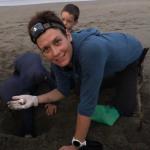 "The turtle experience was beyond Miles's wildest dreams. He was involved in releasing more than 400 hatchlings (I think?) and was able to catch the eggs coming from two different nesting turtles in his (gloved) hand. They were relocated to above the high tide line and away from the raccoons. I am so grateful we had this experience-- this combination of hard work and spectacular reward (in the form of turtles) is hard to find! Our lodging was great and the cook did her very best to accommodate Miles-- not an easy task!"
"The turtle experience was beyond Miles's wildest dreams. He was involved in releasing more than 400 hatchlings (I think?) and was able to catch the eggs coming from two different nesting turtles in his (gloved) hand. They were relocated to above the high tide line and away from the raccoons. I am so grateful we had this experience-- this combination of hard work and spectacular reward (in the form of turtles) is hard to find! Our lodging was great and the cook did her very best to accommodate Miles-- not an easy task!"
Elisabeth and her son Miles, 2 weeks Nov 2024
...Got a question or want to chat to Project Manager Kate who has first-hand experience of the project? Call +44 (0) 1892 771 973or email: – [email protected].
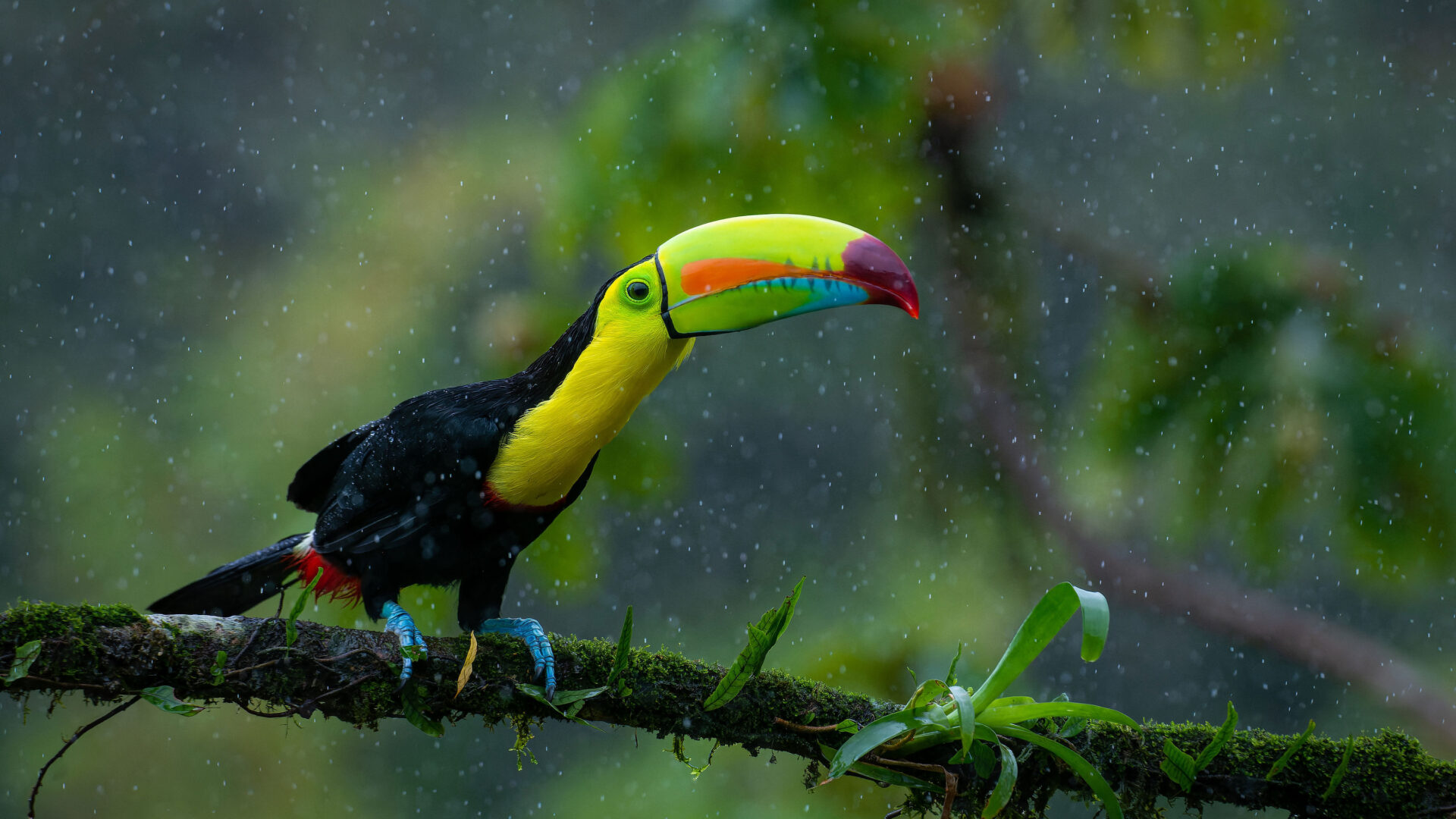






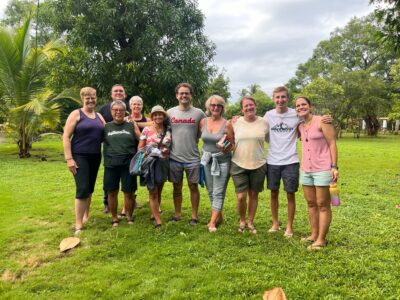
 "
" "I've been in Costa Rica 5 days and am well settled in. Patrol last night was in a largish group, 4.30am tomorrow, just me & local staff. We released 98 hatchlings when I got here on Tuesday afternoon! A sublime, mesmerising experience watching a turtle digging a nest then catching the eggs as she laid them, in my hand(!) b4 transferring them to a safer spot. Couldn't put them in the hatchery as it has to be dismantled by 15th Dec when project closes for the season. Releasing hatchlings at dusk on the first and last evenings was also just magical."
"I've been in Costa Rica 5 days and am well settled in. Patrol last night was in a largish group, 4.30am tomorrow, just me & local staff. We released 98 hatchlings when I got here on Tuesday afternoon! A sublime, mesmerising experience watching a turtle digging a nest then catching the eggs as she laid them, in my hand(!) b4 transferring them to a safer spot. Couldn't put them in the hatchery as it has to be dismantled by 15th Dec when project closes for the season. Releasing hatchlings at dusk on the first and last evenings was also just magical."
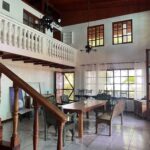 "My time in Costa Rica with my granddaughter Nieve, was wonderful. It was spectacular learning opportunity and a really special way for the two of us to build a bond: working shoulder to shoulder with a very dedicated team of researchers working with amazing animals in a beautiful place. I would recommend it to anyone who is looking for a meaningful way to get away from it all, and spend some time in the tropics. The team were warm, outgoing and very generous. I could go on and on. You have connected with an excellent team on the ground. They were all very responsive and good problem-solvers. My granddaughter is diabetic, so that posed some challenges for us (mostly anxiety on my part) but nonetheless, we were very grateful to have accommodation in the main station house at the site where there was reliable WIFI and also a swimming pool. WIFI allowed her to check in with her mom by WhatsApp most evenings. And it also meant that her mom was able to keep an eye on her sugar levels from afar. It meant that HAD there been a problem, we would have had instant decision-making backup. The pool was great for morale and our comfort. The group of volunteers and researchers was seamless, cooperative and very friendly. We enjoyed the local people we met. "
"My time in Costa Rica with my granddaughter Nieve, was wonderful. It was spectacular learning opportunity and a really special way for the two of us to build a bond: working shoulder to shoulder with a very dedicated team of researchers working with amazing animals in a beautiful place. I would recommend it to anyone who is looking for a meaningful way to get away from it all, and spend some time in the tropics. The team were warm, outgoing and very generous. I could go on and on. You have connected with an excellent team on the ground. They were all very responsive and good problem-solvers. My granddaughter is diabetic, so that posed some challenges for us (mostly anxiety on my part) but nonetheless, we were very grateful to have accommodation in the main station house at the site where there was reliable WIFI and also a swimming pool. WIFI allowed her to check in with her mom by WhatsApp most evenings. And it also meant that her mom was able to keep an eye on her sugar levels from afar. It meant that HAD there been a problem, we would have had instant decision-making backup. The pool was great for morale and our comfort. The group of volunteers and researchers was seamless, cooperative and very friendly. We enjoyed the local people we met. "
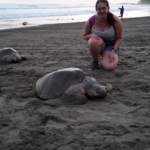 "Getting involved with actual conservation work (night patrols, hatchery work, hatchling releases etc) was a great learning experience and so much fun. The beach was absolutely stunning. So tranquil and we definitely enjoyed the simple life of doing long walks by the beach every day and every night. The moonlight and the stars were so beautiful. The local food was so delicious and nutritious. Loved every aspect of this trip. It really is a trip of a lifetime. My tips would be to bring quick drying clothes, water shoes and mosquito repellant are a must. It is very hot and humid and you will be hand washing your laundry almost every day! The sun is great for drying clothes but be mindful of the downpours! I definitely felt that my holiday supported conservation. The project employed local staff to cook for us and they arranged for the transfers too. I hope our participation helped with their conservation efforts. I would highly recommend this project for people of all ages. Project staff were wonderful and very well organised."
"Getting involved with actual conservation work (night patrols, hatchery work, hatchling releases etc) was a great learning experience and so much fun. The beach was absolutely stunning. So tranquil and we definitely enjoyed the simple life of doing long walks by the beach every day and every night. The moonlight and the stars were so beautiful. The local food was so delicious and nutritious. Loved every aspect of this trip. It really is a trip of a lifetime. My tips would be to bring quick drying clothes, water shoes and mosquito repellant are a must. It is very hot and humid and you will be hand washing your laundry almost every day! The sun is great for drying clothes but be mindful of the downpours! I definitely felt that my holiday supported conservation. The project employed local staff to cook for us and they arranged for the transfers too. I hope our participation helped with their conservation efforts. I would highly recommend this project for people of all ages. Project staff were wonderful and very well organised."
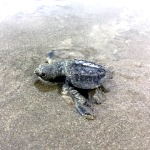 "It was a great experience - really well organised. Kate answered every query so promptly before the trip. Friendly people at the Casa and the night patrols were fun and interesting - I learnt a lot. Brilliant trip all round!"
"It was a great experience - really well organised. Kate answered every query so promptly before the trip. Friendly people at the Casa and the night patrols were fun and interesting - I learnt a lot. Brilliant trip all round!"
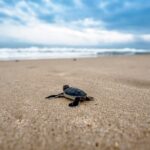 "Me and Jonty are having a really good time. All the people we have met have been so friendly and welcoming, we have loved the food and the accommodation has been amazing. We have also loved seeing the turtles and learning all about them."
"Me and Jonty are having a really good time. All the people we have met have been so friendly and welcoming, we have loved the food and the accommodation has been amazing. We have also loved seeing the turtles and learning all about them."
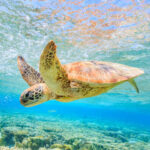 "I've been having such an incredible time! I'm thoroughly enjoying everything and really enjoy getting to know the people in the house, learn more Spanish and about the wildlife and turtles :) I'm really loving the whole experience and being able to volunteer/help with a lovely bunch of people! :)"
"I've been having such an incredible time! I'm thoroughly enjoying everything and really enjoy getting to know the people in the house, learn more Spanish and about the wildlife and turtles :) I'm really loving the whole experience and being able to volunteer/help with a lovely bunch of people! :)"
 "It truly was a brilliant experience I will never forget and I have been telling people about it during my travels. Thanks again for all the help and a very well organised trip. When I do another project you will be the first people I will contact :) "
"It truly was a brilliant experience I will never forget and I have been telling people about it during my travels. Thanks again for all the help and a very well organised trip. When I do another project you will be the first people I will contact :) "
 Our first night coincided with a mass laying event and we saw literally hundreds of turtles. Pretty darn amazing! It was an absolutely amazing experience that surpassed expectations on almost all levels. Big thanks for all your help along the way, it was really useful and reassuring. All the best, Dave and family! "
Our first night coincided with a mass laying event and we saw literally hundreds of turtles. Pretty darn amazing! It was an absolutely amazing experience that surpassed expectations on almost all levels. Big thanks for all your help along the way, it was really useful and reassuring. All the best, Dave and family! "
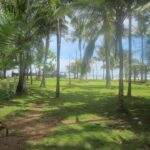 " I’m great thanks, it is amazing here, I have really enjoyed the experience so far, the destination and people and opportunities have all been unreal! I’ve seen quite a few turtles already and this week we are prepping for the start of hatching season. Everything has been phenomenal and so much better than expected! "
" I’m great thanks, it is amazing here, I have really enjoyed the experience so far, the destination and people and opportunities have all been unreal! I’ve seen quite a few turtles already and this week we are prepping for the start of hatching season. Everything has been phenomenal and so much better than expected! "
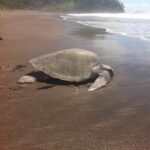 "I am having a really good time thank you. The beach is amazing and the people are so nice. We have done lots of different things and learned lots about turtle conservation.
The food here is amazing too! Katie the coordinator is so welcoming and has been very good at explaining things letting us give everything a go."
"I am having a really good time thank you. The beach is amazing and the people are so nice. We have done lots of different things and learned lots about turtle conservation.
The food here is amazing too! Katie the coordinator is so welcoming and has been very good at explaining things letting us give everything a go."
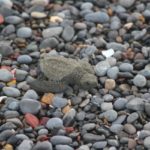 "Just wanted to contact you and thank you for all the help over the past few months. I had such a great time on the project, got to do some amazing things and will have some wonderful memories to look back on. The team were so welcoming and friendly and what an amazing place. And of course the turtles so tiny they break your heart at their strength and bravery going into the big ocean! Thanks again for your help and I have absolutely no doubt I will be back in contact for another project in the future."
"Just wanted to contact you and thank you for all the help over the past few months. I had such a great time on the project, got to do some amazing things and will have some wonderful memories to look back on. The team were so welcoming and friendly and what an amazing place. And of course the turtles so tiny they break your heart at their strength and bravery going into the big ocean! Thanks again for your help and I have absolutely no doubt I will be back in contact for another project in the future."
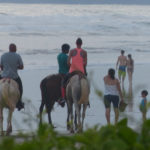 "The experience was amazing as was helping the turtles. The friendly project staff, the amazing atmosphere, the project site.... all highlights. Go with an open mind, don't be afraid to push your limits, be yourself and have fun."
"The experience was amazing as was helping the turtles. The friendly project staff, the amazing atmosphere, the project site.... all highlights. Go with an open mind, don't be afraid to push your limits, be yourself and have fun."
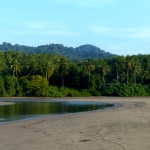 "We had a very rewarding and enjoyable time.I really appreciated and am grateful for the assistance you gave to help us decide whether to go on the trip, and also to prepare for it. It really makes a difference to have someone so friendly and open to liaise with. have told members of my team about our volunteering - who knows, one of them may do the same on day - and I wish you and all the Oyster projects well for the future."
"We had a very rewarding and enjoyable time.I really appreciated and am grateful for the assistance you gave to help us decide whether to go on the trip, and also to prepare for it. It really makes a difference to have someone so friendly and open to liaise with. have told members of my team about our volunteering - who knows, one of them may do the same on day - and I wish you and all the Oyster projects well for the future."
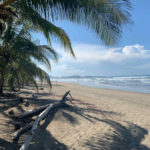 "What an amazing time I had in Costa Rica! The team and other volunteers were so welcoming and very easy to get on with. There were quite a few opportunities to release some baby turtles - it was great to have played a very small part in that. To watch them start their journey out into the big ocean was lovely to watch. I would like to take this opportunity to thank you for your help and for all the useful and important information you sent me."
"What an amazing time I had in Costa Rica! The team and other volunteers were so welcoming and very easy to get on with. There were quite a few opportunities to release some baby turtles - it was great to have played a very small part in that. To watch them start their journey out into the big ocean was lovely to watch. I would like to take this opportunity to thank you for your help and for all the useful and important information you sent me."
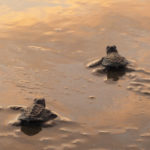 "It was the best experience of my life, can not think of a single improvement, everyone involved was absolutely fantastic"
"It was the best experience of my life, can not think of a single improvement, everyone involved was absolutely fantastic"
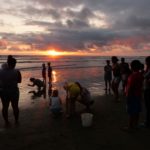 "The information provided was really useful. We were given lots of information before the trip, so were well prepared when we were out there. We really felt we were helping the project by keeping the nesting turtles safe and looking after their eggs. There was evidence of poaching in the area, so we felt that we made a difference."
"The information provided was really useful. We were given lots of information before the trip, so were well prepared when we were out there. We really felt we were helping the project by keeping the nesting turtles safe and looking after their eggs. There was evidence of poaching in the area, so we felt that we made a difference."
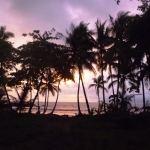 "I had a great time on my trip to Costa Rica! I loved how kind the locals were, how peaceful the area was, how welcoming and professional the coordinators and Research Assistants were, the food was just as great as the two female chefs who prepared it everyday, being away from technology is a big adjustment but it does give certain peace of mind. I really enjoyed my stay and this is a trip i'll remember for the rest of my life"
"I had a great time on my trip to Costa Rica! I loved how kind the locals were, how peaceful the area was, how welcoming and professional the coordinators and Research Assistants were, the food was just as great as the two female chefs who prepared it everyday, being away from technology is a big adjustment but it does give certain peace of mind. I really enjoyed my stay and this is a trip i'll remember for the rest of my life"
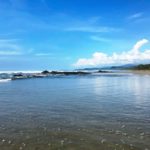 "We had an incredible time and the people we worked with were AMAZING! What a great experience and thank you for putting people in touch with superb organizations doing good in the world. Thank you again for the beautiful experience."
"We had an incredible time and the people we worked with were AMAZING! What a great experience and thank you for putting people in touch with superb organizations doing good in the world. Thank you again for the beautiful experience."
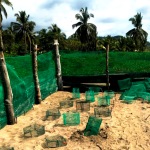 "The staff are lovely and the food is great. We have seen a turtle on each night patrol."
"The staff are lovely and the food is great. We have seen a turtle on each night patrol."
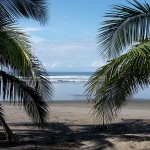 "The experience of seeing turtles nesting was incredible, especially for the children. I love the hands-on element of the project. We all enjoyed being able to handle the eggs and help dig the hole in the hatchery, and help with the release of the hatchlings. We were really lucky to see a few turtles and two lots of hatchlings and it was definitely a positive experience. Costa Rica itself is so beautiful and Playa San Miguel was a magical place to stay."
"The experience of seeing turtles nesting was incredible, especially for the children. I love the hands-on element of the project. We all enjoyed being able to handle the eggs and help dig the hole in the hatchery, and help with the release of the hatchlings. We were really lucky to see a few turtles and two lots of hatchlings and it was definitely a positive experience. Costa Rica itself is so beautiful and Playa San Miguel was a magical place to stay."
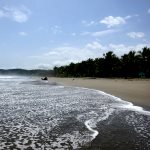 "Each night we’d walk up and down the beach remaining alert for turtles in which case we’d collect the eggs and relocate to the hatchery to improve their chance of survival. The nights are so clear you can see the Milky Way! As much as the atmosphere, environment and rewarding purpose of the trip exceeded all expectations it was the friendships I made that were the highlights. Everyone in the project, staff included, were extremely kind and interesting people and each one has made a lasting positive impression. "
"Each night we’d walk up and down the beach remaining alert for turtles in which case we’d collect the eggs and relocate to the hatchery to improve their chance of survival. The nights are so clear you can see the Milky Way! As much as the atmosphere, environment and rewarding purpose of the trip exceeded all expectations it was the friendships I made that were the highlights. Everyone in the project, staff included, were extremely kind and interesting people and each one has made a lasting positive impression. "
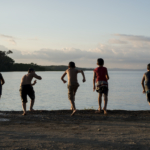 "I have been singing your praises already and so many people have already asked me for the link to your website. Ibelieve a lot of people are looking for something different for their holidays, however, want to do it in a safe and organised way. I feel that Oyster offer all of that. At every point of that experience, I felt safe and secure and knew that there was someone I could ask if there was an issue"
"I have been singing your praises already and so many people have already asked me for the link to your website. Ibelieve a lot of people are looking for something different for their holidays, however, want to do it in a safe and organised way. I feel that Oyster offer all of that. At every point of that experience, I felt safe and secure and knew that there was someone I could ask if there was an issue"
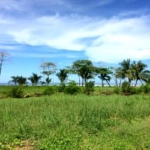 "Thank you for all your help and assistance leading up to the trip and support throughout. It was an absolutely amazing experience and we were so lucky with the weather and other volunteers! It was so beautiful and we're definitely missing Costa Rican life a lot more now we're back. The people were so welcoming, the food was delicious and the general atmosphere was lovely."
"Thank you for all your help and assistance leading up to the trip and support throughout. It was an absolutely amazing experience and we were so lucky with the weather and other volunteers! It was so beautiful and we're definitely missing Costa Rican life a lot more now we're back. The people were so welcoming, the food was delicious and the general atmosphere was lovely."
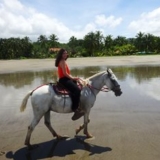 "The highlight was the volunteer work itself - watching the turtles nesting, collecting eggs and seeing babies hatching!Experiencing the Costa Rican lifestyle including the wide variety of home cooked food, playing volleyball with the locals, horse riding and exploring the beach and surrounding areas.Meeting lots of new people and working effectively as part of a team, knowing that you’re making a difference and helping a very worthwhile cause."
"The highlight was the volunteer work itself - watching the turtles nesting, collecting eggs and seeing babies hatching!Experiencing the Costa Rican lifestyle including the wide variety of home cooked food, playing volleyball with the locals, horse riding and exploring the beach and surrounding areas.Meeting lots of new people and working effectively as part of a team, knowing that you’re making a difference and helping a very worthwhile cause."
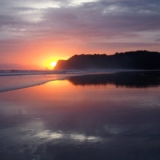 "I absolutely loved the hands on experience with the turtles, I didn't realise how much I would be able to do only being there for a week. The accommodation exceeded my expectations by miles and the location was beautiful .The arrival in the country was also very efficient and put me at ease. The 'My Oyster' account had everything you could think of needing.I think it was an amazing experience"
"I absolutely loved the hands on experience with the turtles, I didn't realise how much I would be able to do only being there for a week. The accommodation exceeded my expectations by miles and the location was beautiful .The arrival in the country was also very efficient and put me at ease. The 'My Oyster' account had everything you could think of needing.I think it was an amazing experience"
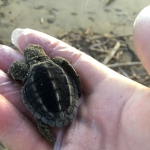 "The beach was totally beautiful. The thrill of turtle tracking in the wild is exhilarating. The bond between volunteers is robust. Seeing fireflies, stars, watching pelicans catch fish in the wave breaks, squirrels eating coconuts, iguanas ..all amazing. Maybeth and Gabriella cooking: delicious. Overall, we had an experience which was FANTASTIC."
"The beach was totally beautiful. The thrill of turtle tracking in the wild is exhilarating. The bond between volunteers is robust. Seeing fireflies, stars, watching pelicans catch fish in the wave breaks, squirrels eating coconuts, iguanas ..all amazing. Maybeth and Gabriella cooking: delicious. Overall, we had an experience which was FANTASTIC."
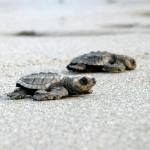 "The experience was one I can't describe I was lucky enough to not only see multiple adult turtles but also hatchlings. I felt completely involved and was allowed to do hands on work that I never thought I would have had the opportunity to, such as handle the eggs and personally release hatchlings. All the locals were so friendly and always tried at the limited conversation we could have (due to language barrier). I thoroughly loved my experience with the turtles and all the people involved, only wish I had gone for longer now."
"The experience was one I can't describe I was lucky enough to not only see multiple adult turtles but also hatchlings. I felt completely involved and was allowed to do hands on work that I never thought I would have had the opportunity to, such as handle the eggs and personally release hatchlings. All the locals were so friendly and always tried at the limited conversation we could have (due to language barrier). I thoroughly loved my experience with the turtles and all the people involved, only wish I had gone for longer now."
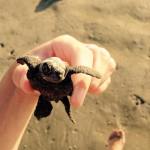 "We had an amazing trip. Our children absolutely loved being there, learned so much, and had an experience they’ll always remember. We did a little exploring on our own and some with a guide. The food was really good—better than expected. The staff was superb, and especially good with the kids, who jumped into the work and felt like they were contributing. So thanks again. We will definitely be looking to Oyster again for another family trip."
"We had an amazing trip. Our children absolutely loved being there, learned so much, and had an experience they’ll always remember. We did a little exploring on our own and some with a guide. The food was really good—better than expected. The staff was superb, and especially good with the kids, who jumped into the work and felt like they were contributing. So thanks again. We will definitely be looking to Oyster again for another family trip."
 " The second night was incredibly fascinating: after maybe 15 minutes patrolling we spotted a turtle right about coming out from the sea; we stopped and followed her in the whole process of walking up the beach, finding the right place, digging into the sand to create the nest and the laying the eggs! A total of 142 eggs! ! It was really fascinating and a big emotion to follow the turtle in doing that, the effort that all this required to her, you could hear her breath for the effort she was making"
" The second night was incredibly fascinating: after maybe 15 minutes patrolling we spotted a turtle right about coming out from the sea; we stopped and followed her in the whole process of walking up the beach, finding the right place, digging into the sand to create the nest and the laying the eggs! A total of 142 eggs! ! It was really fascinating and a big emotion to follow the turtle in doing that, the effort that all this required to her, you could hear her breath for the effort she was making"
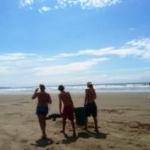 "I would rate my experience during the whole thing as incredible as it was very suited to my values and ethics. Being a sport lover, playing volleyball or football on the beach with the locals every night was great fun and also surfing everyday. The work with the turtles was very rewarding especially when you release a nest of hatchlings. If you love a really relaxed atmosphere, meeting new people, and helping a species' population then you'll love it. It's a great break from normal fast pace life, just bring lots of books!"
"I would rate my experience during the whole thing as incredible as it was very suited to my values and ethics. Being a sport lover, playing volleyball or football on the beach with the locals every night was great fun and also surfing everyday. The work with the turtles was very rewarding especially when you release a nest of hatchlings. If you love a really relaxed atmosphere, meeting new people, and helping a species' population then you'll love it. It's a great break from normal fast pace life, just bring lots of books!"
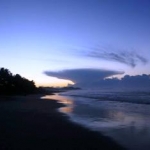 "I've had such a fantastic time, I'm taking many good memories away with me. It was a great opportunity to meet new people, experience new surroundings and a new culture, and gave me a confidence boost for travelling on my own! And of course, seeing the turtles come up to nest and the hatchlings going out to sea will be experiences I will never forget. Along with all the other wildlife I got to see, it was very cool. Thanks for all your help with organising my trip - it was a great one."
"I've had such a fantastic time, I'm taking many good memories away with me. It was a great opportunity to meet new people, experience new surroundings and a new culture, and gave me a confidence boost for travelling on my own! And of course, seeing the turtles come up to nest and the hatchlings going out to sea will be experiences I will never forget. Along with all the other wildlife I got to see, it was very cool. Thanks for all your help with organising my trip - it was a great one."
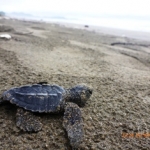 "A highlight was definitely encountering nesting females on night patrol and collecting the eggs as she was laying them. Also releasing hatchlings was amazing every time. I got an opportunity to spend time in a fantastic environment, contributing to a conservation effort and to have a unique overall experience. A very well organized programme."
"A highlight was definitely encountering nesting females on night patrol and collecting the eggs as she was laying them. Also releasing hatchlings was amazing every time. I got an opportunity to spend time in a fantastic environment, contributing to a conservation effort and to have a unique overall experience. A very well organized programme."
 "The experience was filled with great people and lasting memories. A highlight was meeting amazing people and getting to experience a Tico lifestyle. It's a great way to experience something way out of your element. It helps you grow as a person and figure out who you are."
"The experience was filled with great people and lasting memories. A highlight was meeting amazing people and getting to experience a Tico lifestyle. It's a great way to experience something way out of your element. It helps you grow as a person and figure out who you are."
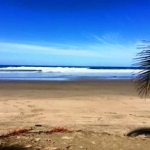

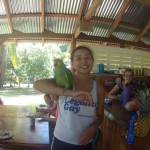
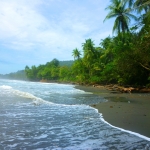 "
"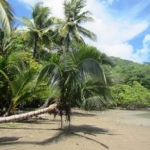 "It far exceeded my expectations! It was a tropical paradise."
"It far exceeded my expectations! It was a tropical paradise."
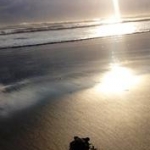 "Being able to watch a turtle come onshore to build her nest and lay her eggs and then collecting the eggs was incredibly rewarding and honestly a once in a life time experience. You really feel as though you can make a difference to the species and, as a geography student, I gained so much valuable knowledge about the species and conservation which I can use later at university"
"Being able to watch a turtle come onshore to build her nest and lay her eggs and then collecting the eggs was incredibly rewarding and honestly a once in a life time experience. You really feel as though you can make a difference to the species and, as a geography student, I gained so much valuable knowledge about the species and conservation which I can use later at university"
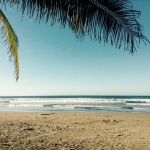 "I had an absolutely amazing time, definitely unlike anything I had ever experienced, and I will never ever forget my time there!! From the authentic food, the other wonderful volunteers, the beach life, the remote untouched beauty of the location, to the amazing and incredibly interesting work with the turtles, it was absolutely the best travel decision I have ever made!"
"I had an absolutely amazing time, definitely unlike anything I had ever experienced, and I will never ever forget my time there!! From the authentic food, the other wonderful volunteers, the beach life, the remote untouched beauty of the location, to the amazing and incredibly interesting work with the turtles, it was absolutely the best travel decision I have ever made!"
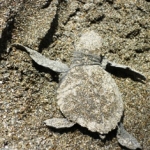 "It is an amazing opportunity to get involved in something which is making a real difference. It gives you a new sense of life. Once you have done it on your own you feel like you can conquer anything. I can't fault Oyster; so quick to respond to questions and so polite on the phone!"
"It is an amazing opportunity to get involved in something which is making a real difference. It gives you a new sense of life. Once you have done it on your own you feel like you can conquer anything. I can't fault Oyster; so quick to respond to questions and so polite on the phone!"
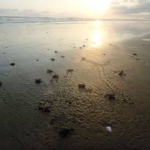 "It was amazing to see the turtles, it didn't feel like work at all. Met some really great friends and it is such a beautiful country with a beautiful culture."
"It was amazing to see the turtles, it didn't feel like work at all. Met some really great friends and it is such a beautiful country with a beautiful culture."
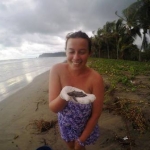 "The amount of hands-on work I experienced with the animals was far better than I imagined it would be. The highlights were getting to watch the female turtles' nesting process on the beach, releasing hundreds of hatchlings in to the ocean and the people I shared the experience with. It really is a once in a lifetime experience, and I wish more people could learn about the conservation work the dedicated people out there do every day."
"The amount of hands-on work I experienced with the animals was far better than I imagined it would be. The highlights were getting to watch the female turtles' nesting process on the beach, releasing hundreds of hatchlings in to the ocean and the people I shared the experience with. It really is a once in a lifetime experience, and I wish more people could learn about the conservation work the dedicated people out there do every day."
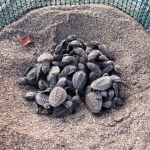 "I wasn't sure what to expect before arriving in Costa Rica. Once I had got there, the people, the area, the culture, everything in general was amazing. It was a complete culture shock. It was nice to see how people live on the other side of the world; it makes you really appreciate what you have back at home."
"I wasn't sure what to expect before arriving in Costa Rica. Once I had got there, the people, the area, the culture, everything in general was amazing. It was a complete culture shock. It was nice to see how people live on the other side of the world; it makes you really appreciate what you have back at home."
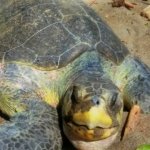 "My highlights were seeing a turtle on my very first patrol and putting the eggs into the hatchery, meeting people from a range of backgrounds and creating some great friendships."
"My highlights were seeing a turtle on my very first patrol and putting the eggs into the hatchery, meeting people from a range of backgrounds and creating some great friendships."
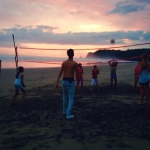 "It's amazing out here, so beautiful. I'm having an amazing time and would definitely suggest a trip like this to my friends if they wanted to do something different or volunteering wise."
"It's amazing out here, so beautiful. I'm having an amazing time and would definitely suggest a trip like this to my friends if they wanted to do something different or volunteering wise."
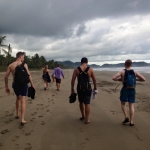 "
"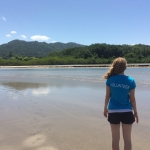 "It was amazing and totally worth it. Other activities like the butterfly farm, hiking and visiting town made it all an unforgettable trip that proved very worthwhile. Our leader Alex was great and helped everything run smoothly. I especially have to say that as a vegan the food was great, Marbeth in particular was very accommodating so I was happy there! The other people were great and I enjoyed our nights in San Jose too so what a fab trip I feel very lucky."
"It was amazing and totally worth it. Other activities like the butterfly farm, hiking and visiting town made it all an unforgettable trip that proved very worthwhile. Our leader Alex was great and helped everything run smoothly. I especially have to say that as a vegan the food was great, Marbeth in particular was very accommodating so I was happy there! The other people were great and I enjoyed our nights in San Jose too so what a fab trip I feel very lucky."
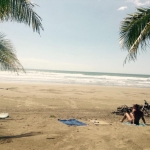 "I am having a wonderful time. Initially it did take a bit of time to settle in and get used to the slower pace of life. However, I have now become more accustomed to the routine and have made great friends. I have really enjoyed keeping busy in the day with lots of activities. This week, I have been kayaking, tried yoga, played volleyball and visited the butterfly farm! Trips to the local town have also been a highlight, along with having really great traditional food."
"I am having a wonderful time. Initially it did take a bit of time to settle in and get used to the slower pace of life. However, I have now become more accustomed to the routine and have made great friends. I have really enjoyed keeping busy in the day with lots of activities. This week, I have been kayaking, tried yoga, played volleyball and visited the butterfly farm! Trips to the local town have also been a highlight, along with having really great traditional food."
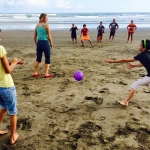 "I had such an amazing experience volunteering for a week in Costa Rica at a sea turtle conservation project! I met so many great people along the way and also got to save some turtles. Thank you so much for helping and making this whole experience very smooth and easy."
"I had such an amazing experience volunteering for a week in Costa Rica at a sea turtle conservation project! I met so many great people along the way and also got to save some turtles. Thank you so much for helping and making this whole experience very smooth and easy."
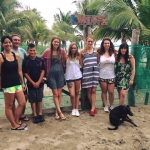 "These past 10 days or so have been the best so far of my life, volunteering in Costa Rica was a dream come true. Literally had the best time ever in Costa Rica saving the baby turtles, and met some of the best people. Can't wait to go back! It was a great experience and we can't wait for next year!"
"These past 10 days or so have been the best so far of my life, volunteering in Costa Rica was a dream come true. Literally had the best time ever in Costa Rica saving the baby turtles, and met some of the best people. Can't wait to go back! It was a great experience and we can't wait for next year!"
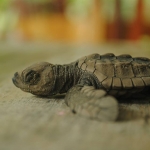 "I had the most amazing time and am most definitely missing my time there. Fab project and really lovely group out there at the same time as me. Thank you so much"
"I had the most amazing time and am most definitely missing my time there. Fab project and really lovely group out there at the same time as me. Thank you so much"
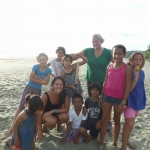 "Just got back from an amazing 3 weeks in Costa Rica working with turtles. Loved every minute, even the rustic camp which was certainly an experience! Looking now to find my next project."
"Just got back from an amazing 3 weeks in Costa Rica working with turtles. Loved every minute, even the rustic camp which was certainly an experience! Looking now to find my next project."
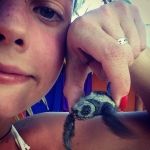 "Costa Rica was so amazing and I miss it very much, especially the sun! We saw a leatherback! Which was obviously absolutely amazing."
"Costa Rica was so amazing and I miss it very much, especially the sun! We saw a leatherback! Which was obviously absolutely amazing."
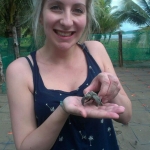 "Enjoyed the time away and liked the amount of volunteering that is on the project i.e. excavations during the day and patrols at night. Spotting and saving my very first baby turtle during excavations was amazing, as was carrying buckets full of babies down to the beach. We also helped free an older turtle that was tangled up in some fishing wire. It was great to feel like my actions made a difference. If you enjoy conservation and would like a chilled out stunning beach location then this project is for you"
"Enjoyed the time away and liked the amount of volunteering that is on the project i.e. excavations during the day and patrols at night. Spotting and saving my very first baby turtle during excavations was amazing, as was carrying buckets full of babies down to the beach. We also helped free an older turtle that was tangled up in some fishing wire. It was great to feel like my actions made a difference. If you enjoy conservation and would like a chilled out stunning beach location then this project is for you"
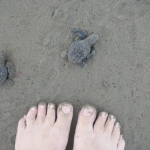 "Releasing my first nest of hatchlings at sunrise was amazing. This is a once in a lifetime experience. Just go for it and get stuck straight in!"
"Releasing my first nest of hatchlings at sunrise was amazing. This is a once in a lifetime experience. Just go for it and get stuck straight in!"
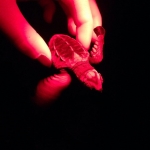 "Such an amazing country and the location of the project is just so stunningly beautiful it would be impossible not to fall in love with it! Getting to see so many baby turtles released into the Pacific was such an amazing experience and to actually be a part of it made it all the more special. Just want to take this opportunity to thank you and all at Oyster for such a fantastic experience. Thank you for helping create so far the best experience of my life!"
"Such an amazing country and the location of the project is just so stunningly beautiful it would be impossible not to fall in love with it! Getting to see so many baby turtles released into the Pacific was such an amazing experience and to actually be a part of it made it all the more special. Just want to take this opportunity to thank you and all at Oyster for such a fantastic experience. Thank you for helping create so far the best experience of my life!"
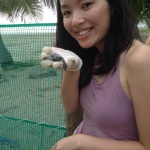 "The 2 weeks that I have spent in Costa Rica will remain unforgettable. It was a once in a life time experience. Loved it!! Working with the turtles was a dream come true."
"The 2 weeks that I have spent in Costa Rica will remain unforgettable. It was a once in a life time experience. Loved it!! Working with the turtles was a dream come true."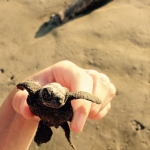 "This is something I have thought about for so long and then to go and work with turtles it was truly fantastic and lived up to all my expectations. Everyone should experience something like this, something they would really like to do in life, have fun, meet new people, go places you would never think of and most of all gain the confidence to achieve anything you want. The whole process was made easy and I loved all the info I received before I left."
"This is something I have thought about for so long and then to go and work with turtles it was truly fantastic and lived up to all my expectations. Everyone should experience something like this, something they would really like to do in life, have fun, meet new people, go places you would never think of and most of all gain the confidence to achieve anything you want. The whole process was made easy and I loved all the info I received before I left."
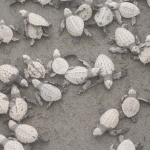 "Loved the turtle conservation and the people I met. I l
"Loved the turtle conservation and the people I met. I l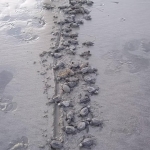 "We loved the project and how beautiful the beach was. Really glad we took part. The turtles were great, the babies are so cute and its just amazing that any survive as they are so small. We did loads of body boarding and surfing which we loved."
"We loved the project and how beautiful the beach was. Really glad we took part. The turtles were great, the babies are so cute and its just amazing that any survive as they are so small. We did loads of body boarding and surfing which we loved."
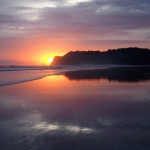 "It was a very relaxing and beautiful beach and I learnt so much about the culture and turtles. Seeing all the baby turtles and watching them make their way into the ocean was a definite highlight! It is simply the most amazing opportunity to work so closely with with turtles and a really interesting change in culture and lifestyle, that I think everyone would benefit from trying it for a bit!"
"It was a very relaxing and beautiful beach and I learnt so much about the culture and turtles. Seeing all the baby turtles and watching them make their way into the ocean was a definite highlight! It is simply the most amazing opportunity to work so closely with with turtles and a really interesting change in culture and lifestyle, that I think everyone would benefit from trying it for a bit!"
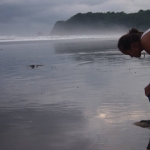 "This trip was very good. You feel like you are really making a difference. It's amazing to see so many hundreds of small hatchlings being released."
"This trip was very good. You feel like you are really making a difference. It's amazing to see so many hundreds of small hatchlings being released."
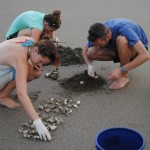 "I had an amazing time in Costa Rica. Seeing all the turtles was so cool and I even got to see the arribada. The main highlight was releasing the baby turtles back into the sea."
"I had an amazing time in Costa Rica. Seeing all the turtles was so cool and I even got to see the arribada. The main highlight was releasing the baby turtles back into the sea."
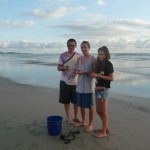 "I really miss being in Costa Rica. The independence I gained from travelling alone and being without my parents for an extended period of time was great. Likewise the friends I made whilst out there, but most importantly seeing a country I have dreamed of visiting and working with hundreds of turtles!"
"I really miss being in Costa Rica. The independence I gained from travelling alone and being without my parents for an extended period of time was great. Likewise the friends I made whilst out there, but most importantly seeing a country I have dreamed of visiting and working with hundreds of turtles!"
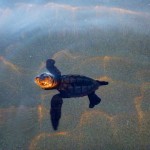 "Just thought I would drop you a quick note to say we are having a wonderful time out here! It's a fantastic location and the people are great."
"Just thought I would drop you a quick note to say we are having a wonderful time out here! It's a fantastic location and the people are great."
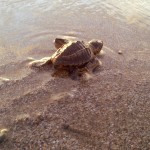 "I had an amazing time and would recommend this experience to anyone who’s looking to travel and help the local community. I’m so much more confident for it, I have memories that will last a lifetime and I’ve conquered my fear of flying! Thank you so much to everyone at Oyster who helped make this possible."
"I had an amazing time and would recommend this experience to anyone who’s looking to travel and help the local community. I’m so much more confident for it, I have memories that will last a lifetime and I’ve conquered my fear of flying! Thank you so much to everyone at Oyster who helped make this possible."
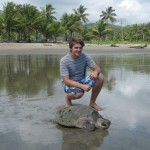 "It felt great to feel that we were making some kind of impact on saving an endangered species and it was an unforgettable and incredible experience. Thank you so much for all your unbelievable help in the run-up to my trip out, it was simply the most amazing experience, and I hope it continues to be so for future volunteers."
"It felt great to feel that we were making some kind of impact on saving an endangered species and it was an unforgettable and incredible experience. Thank you so much for all your unbelievable help in the run-up to my trip out, it was simply the most amazing experience, and I hope it continues to be so for future volunteers."
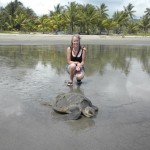 "Everything was well organised. The location was beautiful. I learnt lots and the project was very hands on. The people were really nice. Oyster prepared me for what to expect and I had all the correct gear I needed for the project. The food was great and the locals were really friendly and the other volunteers were really nice."
"Everything was well organised. The location was beautiful. I learnt lots and the project was very hands on. The people were really nice. Oyster prepared me for what to expect and I had all the correct gear I needed for the project. The food was great and the locals were really friendly and the other volunteers were really nice."
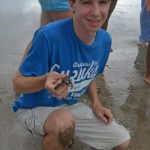 "It was certainly totally different to anything I had ever done before. It was also both fun and genuinely educational. Highlights included the beautiful location, the hatchlings, being one of the lucky few to see a pacific leatherback turtle visit the beach - the first to do so in five years!!!"
"It was certainly totally different to anything I had ever done before. It was also both fun and genuinely educational. Highlights included the beautiful location, the hatchlings, being one of the lucky few to see a pacific leatherback turtle visit the beach - the first to do so in five years!!!"
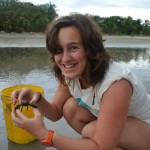
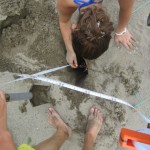 “A relaxing holiday while still contributing to a worthwhile project that allows you to experience turtles up close.”
“A relaxing holiday while still contributing to a worthwhile project that allows you to experience turtles up close.”
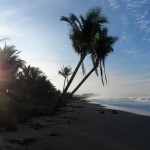 "Thank you for all your help with organising my volunteering trip, it was such an amazing experience that I will never forget. I only just missed the hatchlings two days after I left! The place is amazing. Once again thank you so much, I would definitely do it again."
"Thank you for all your help with organising my volunteering trip, it was such an amazing experience that I will never forget. I only just missed the hatchlings two days after I left! The place is amazing. Once again thank you so much, I would definitely do it again."
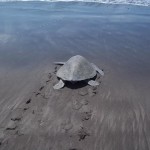 "The whole experience is something I will never forget. It's there in my mind's eye forever and I also have some amazing photos and video which I have shown to family and friends. It's impossible to pick out one incident or event, but certainly my last day there, coming across in broad daylight an Olive Ridley turtle and watching her lay her eggs and then go back into the sea was really special."
"The whole experience is something I will never forget. It's there in my mind's eye forever and I also have some amazing photos and video which I have shown to family and friends. It's impossible to pick out one incident or event, but certainly my last day there, coming across in broad daylight an Olive Ridley turtle and watching her lay her eggs and then go back into the sea was really special."
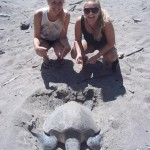 "The project exceeded my expectations. Walking along the beach at nighttime, and releasing baby turtles at sunset was such an enjoyable ‘work’ experience. Highlight was definitely the beach in itself, and working with sea turtles. After travelling around Costa Rica for 4 weeks, we actually found that the paradise beach was the most beautiful place we visited in the country."
"The project exceeded my expectations. Walking along the beach at nighttime, and releasing baby turtles at sunset was such an enjoyable ‘work’ experience. Highlight was definitely the beach in itself, and working with sea turtles. After travelling around Costa Rica for 4 weeks, we actually found that the paradise beach was the most beautiful place we visited in the country."
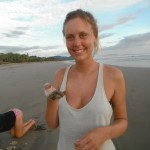 "I just want to thank you for all your help and professionalism when it comes to the project we did in Costa Rica. We were really impressed at how quickly you came back to us with information and at all the information you provided us with. We really enjoyed the project, and this is something I'll remember for ever!"
"I just want to thank you for all your help and professionalism when it comes to the project we did in Costa Rica. We were really impressed at how quickly you came back to us with information and at all the information you provided us with. We really enjoyed the project, and this is something I'll remember for ever!"
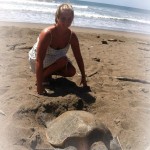 “Costa Rica is so beautiful!! The turtles are the cutest!!! Thank you for everything!! The highlights were the setting, on the beach surrounded by forest and hills and very rural. The other volunteers I was there with were brilliant and made it fun. The turtles of course were amazing, collecting the eggs and releasing hatchlings is a fulfilling experience”
“Costa Rica is so beautiful!! The turtles are the cutest!!! Thank you for everything!! The highlights were the setting, on the beach surrounded by forest and hills and very rural. The other volunteers I was there with were brilliant and made it fun. The turtles of course were amazing, collecting the eggs and releasing hatchlings is a fulfilling experience”
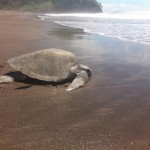 “I have had a fantastic time in Costa Rica on the turtle project. Seeing turtles nesting and releasing baby hatchlings was absolutely fantastic. The team spirit between volunteers and locals was great. During the five weeks that I was there, we collected more than 6000 eggs and released over 3000. This has been the best experience in a long time!”
“I have had a fantastic time in Costa Rica on the turtle project. Seeing turtles nesting and releasing baby hatchlings was absolutely fantastic. The team spirit between volunteers and locals was great. During the five weeks that I was there, we collected more than 6000 eggs and released over 3000. This has been the best experience in a long time!”
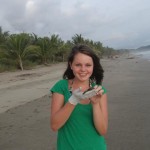 “I’m home from Costa Rica and want to thank you for everything because it was AMAZING! I had such a good time, the other volunteers were lovely and the food was fantastic and the turtles were better than I thought, I didn't believe how much hands on experience you got with them. Thanks for everything.”
“I’m home from Costa Rica and want to thank you for everything because it was AMAZING! I had such a good time, the other volunteers were lovely and the food was fantastic and the turtles were better than I thought, I didn't believe how much hands on experience you got with them. Thanks for everything.”
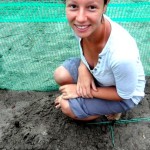 “Thank you so much for such an amazing two weeks! We both had such a lovely time and it was amazing to be involved in setting up a new project site. If you want to get involved with a worthwhile project, then this is a great project for you! The fact that I have returned to Oyster each time (four times now!) goes a long way in saying how much I have enjoyed each experience.”
“Thank you so much for such an amazing two weeks! We both had such a lovely time and it was amazing to be involved in setting up a new project site. If you want to get involved with a worthwhile project, then this is a great project for you! The fact that I have returned to Oyster each time (four times now!) goes a long way in saying how much I have enjoyed each experience.”
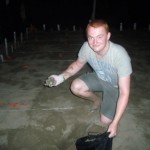 “Costa Rica is amazing!! I have had the most wonderful time here so far”
“Costa Rica is amazing!! I have had the most wonderful time here so far”
 “Just to let you know that all is going well here and having one of the most exciting experiences of my life! Have been helping to release several patches of baby turtles in the sea and the night before last saw my first turtle laying eggs! It really is such a special privilege to be able to release baby turtles into the sea. The scenery and wildlife in Costa Rica is absolutely gorgeous."
“Just to let you know that all is going well here and having one of the most exciting experiences of my life! Have been helping to release several patches of baby turtles in the sea and the night before last saw my first turtle laying eggs! It really is such a special privilege to be able to release baby turtles into the sea. The scenery and wildlife in Costa Rica is absolutely gorgeous."
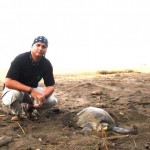 “For two whole days and nights, thousands of turtles climbed the beach of the Community Project to lay their eggs in the sand - you could barely see the sand for the turtles. We have had a very busy few days protecting the eggs - when each turtle lays a nest of about 100 eggs, the sight in November will be something to behold, with masses of baby turtles hatching daily.”
“For two whole days and nights, thousands of turtles climbed the beach of the Community Project to lay their eggs in the sand - you could barely see the sand for the turtles. We have had a very busy few days protecting the eggs - when each turtle lays a nest of about 100 eggs, the sight in November will be something to behold, with masses of baby turtles hatching daily.”
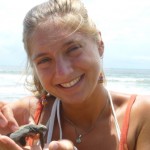 "Going to Costa Rica was my first time out of Europe, and it was a fantastic experience. I loved meeting lots of new people, getting involved in the local community, living on the beach, improving my Spanish, releasing the baby turtles back to the sea, exploring the local area... everything about this trip was amazing and I was very sad to leave at the end of the 5 weeks."
"Going to Costa Rica was my first time out of Europe, and it was a fantastic experience. I loved meeting lots of new people, getting involved in the local community, living on the beach, improving my Spanish, releasing the baby turtles back to the sea, exploring the local area... everything about this trip was amazing and I was very sad to leave at the end of the 5 weeks."
